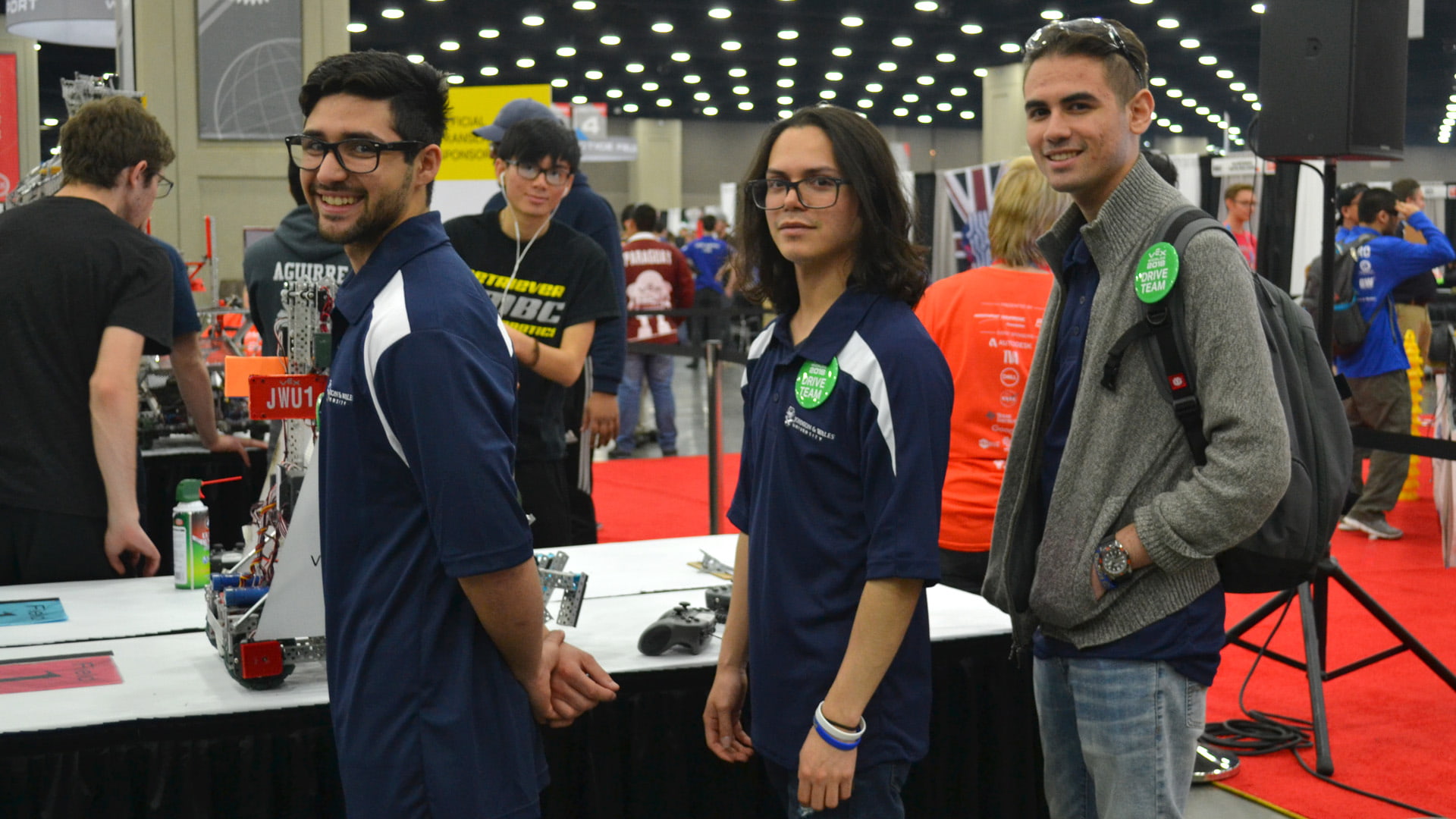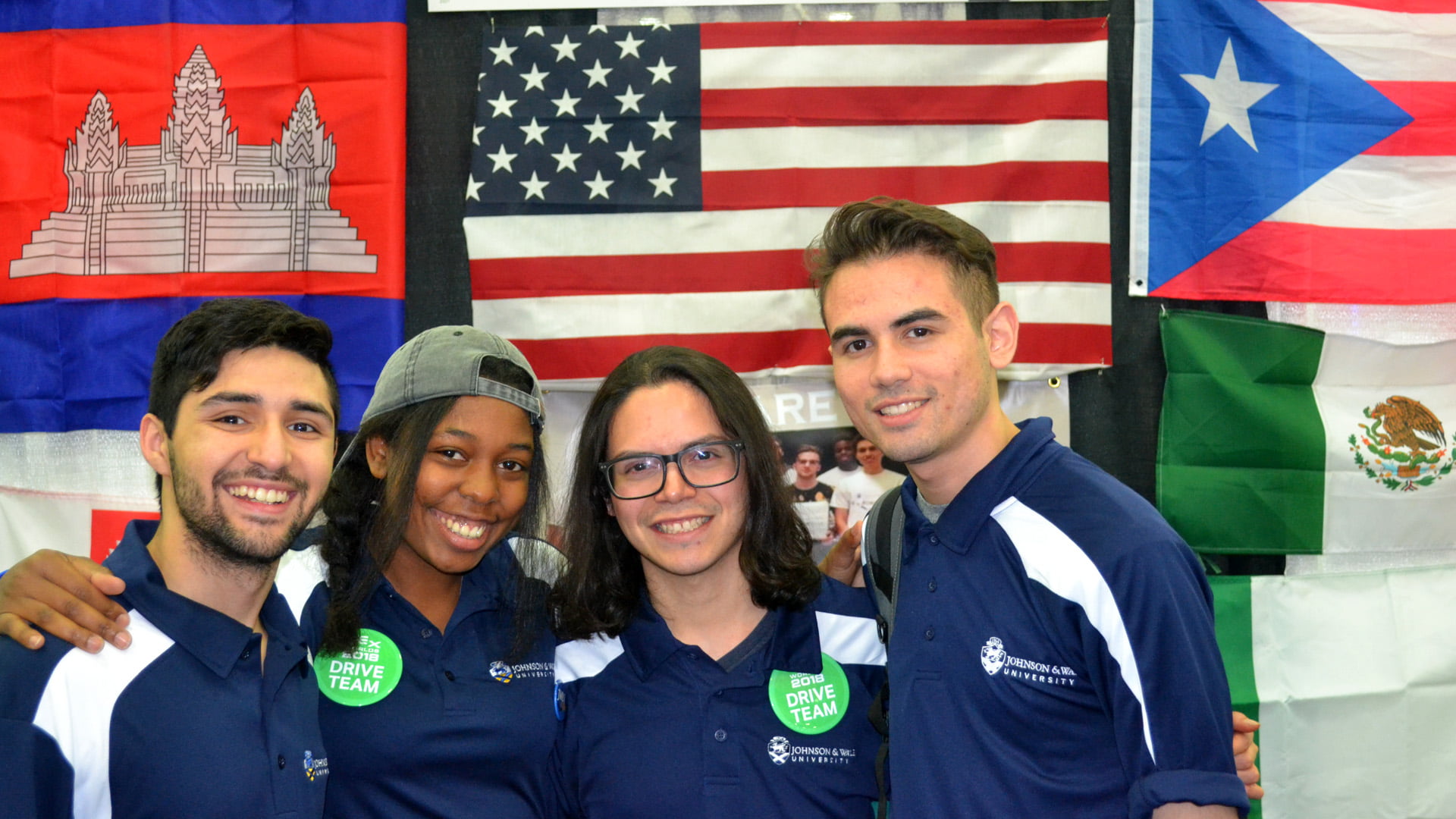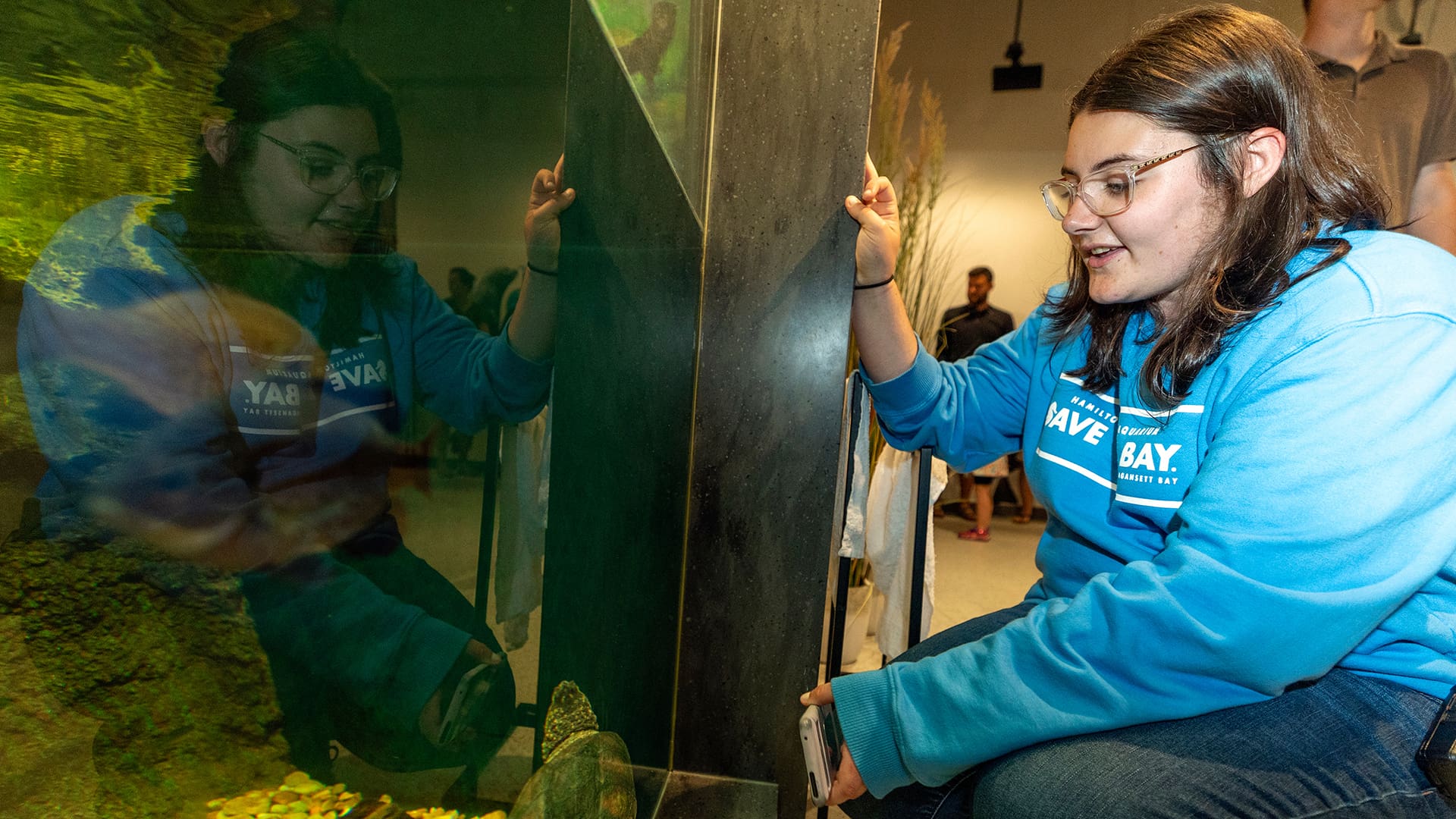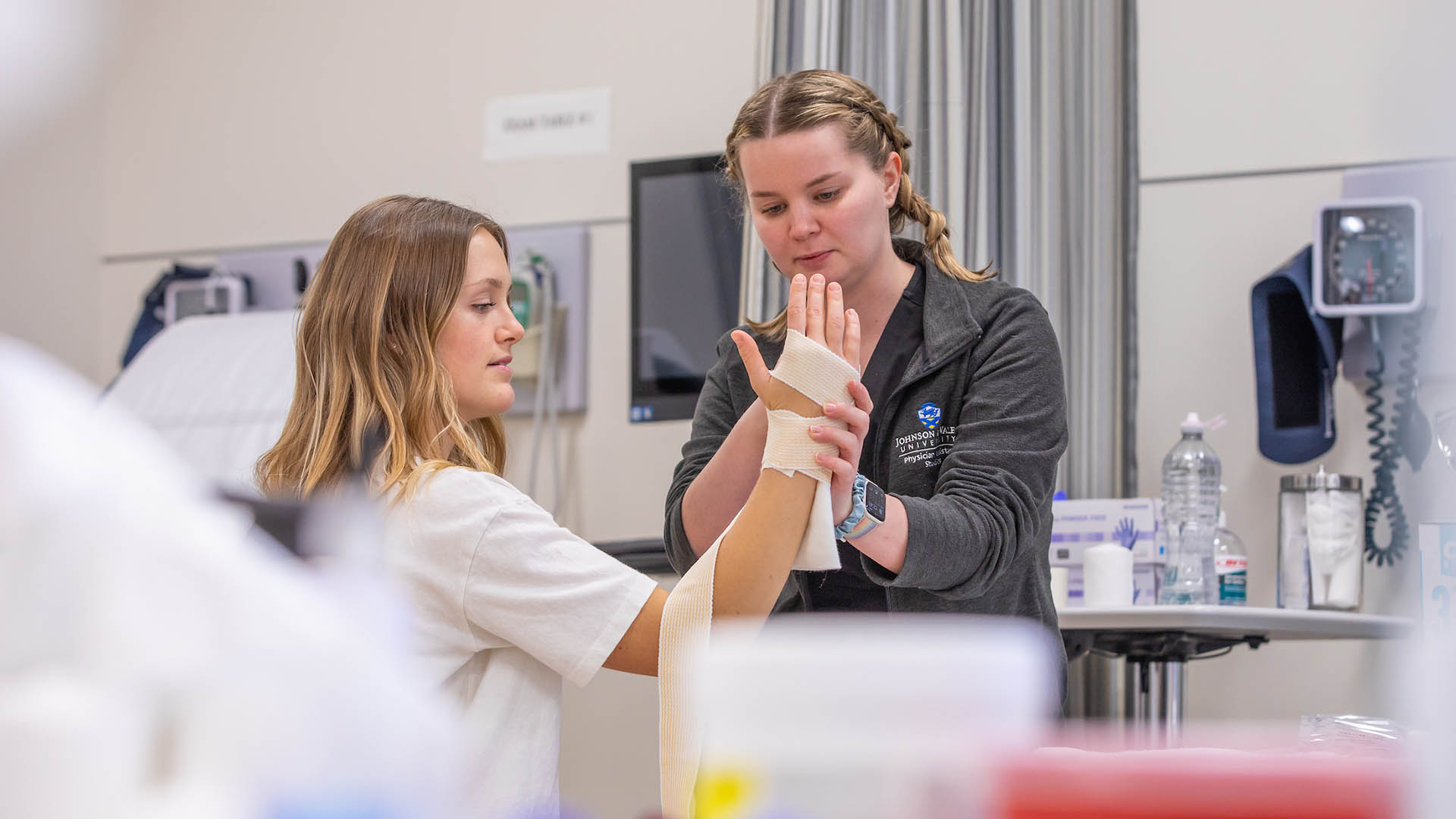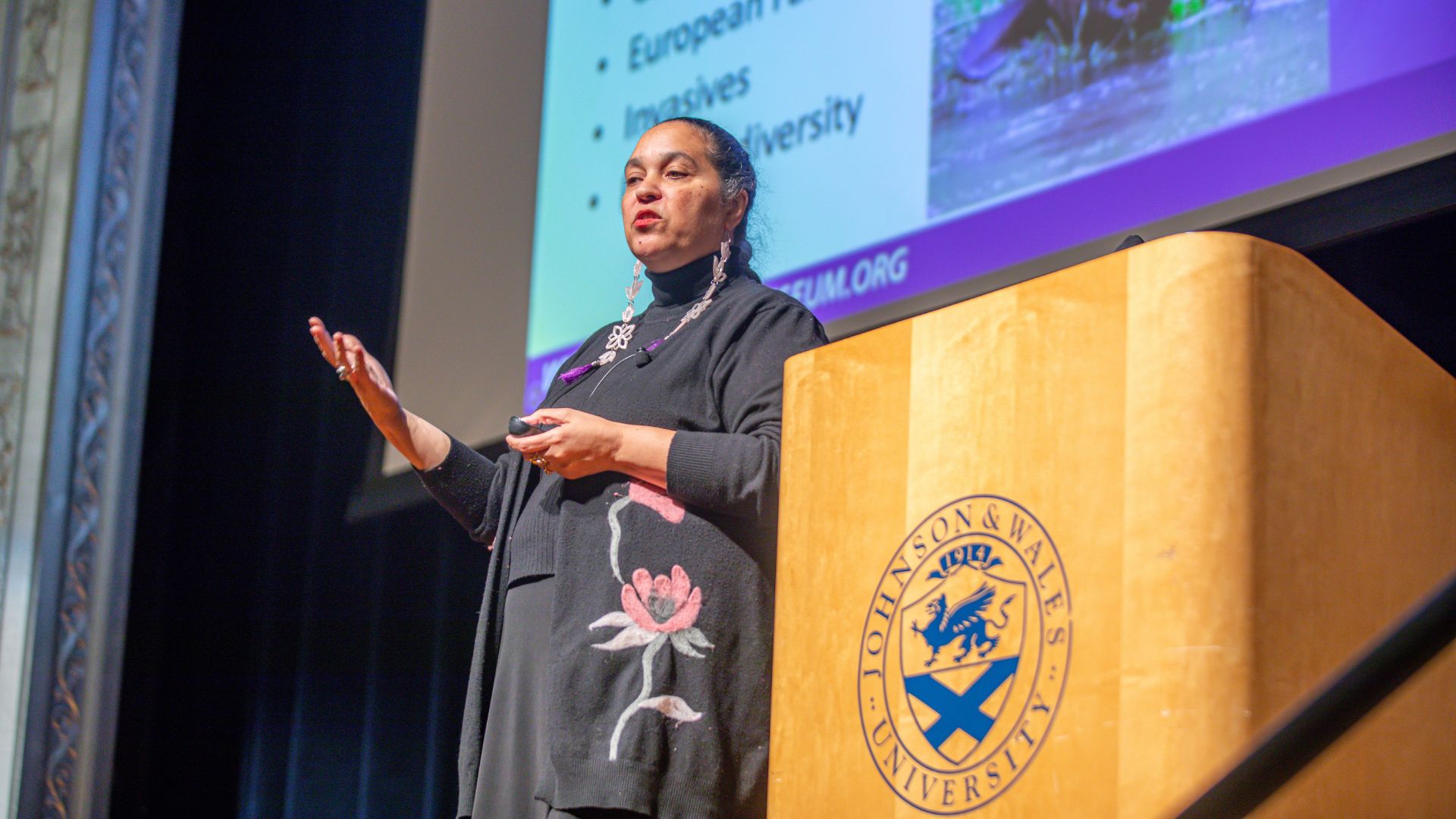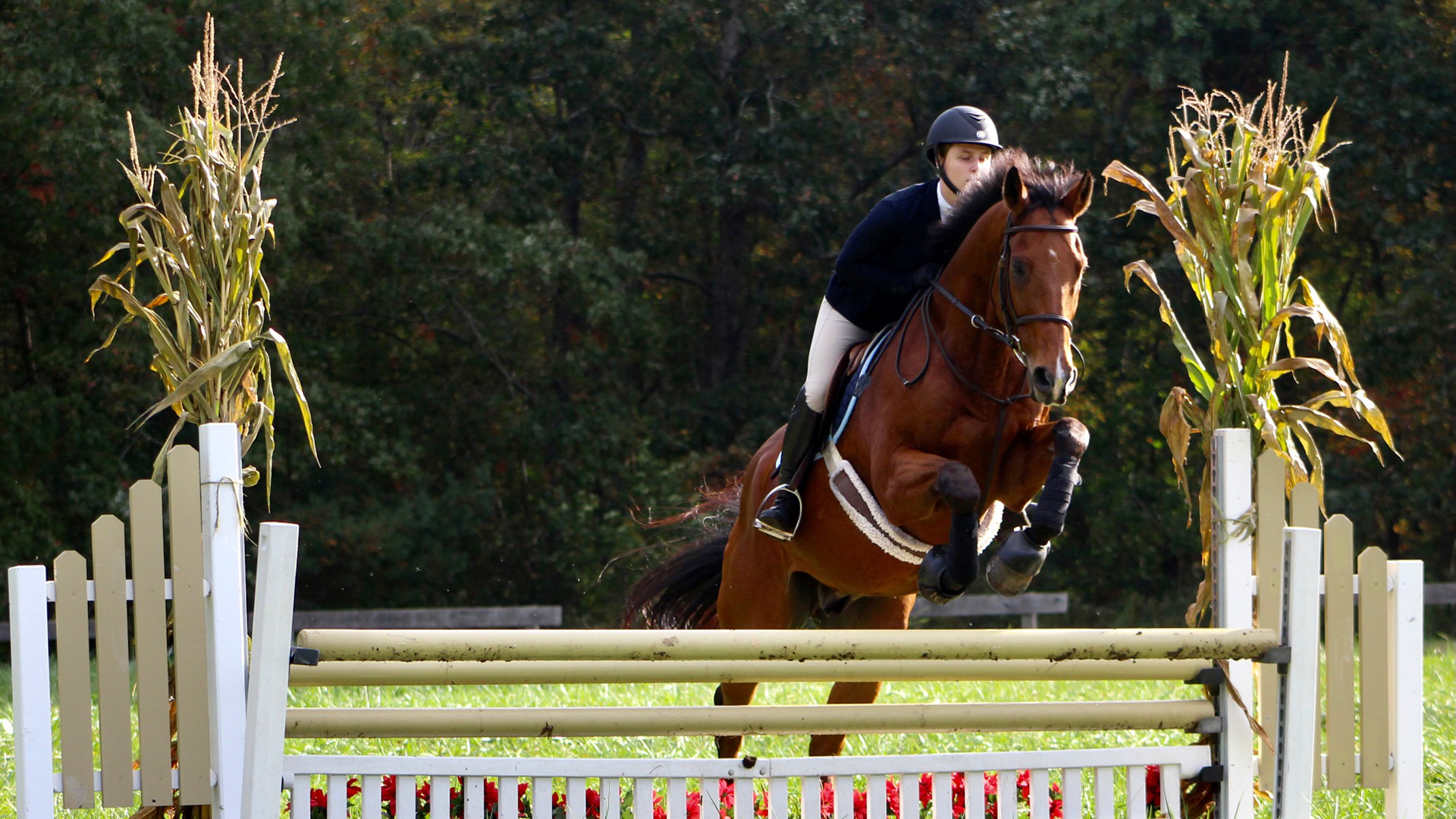JWU Robotics Club Ranks 21 and Wins Award at World Championship
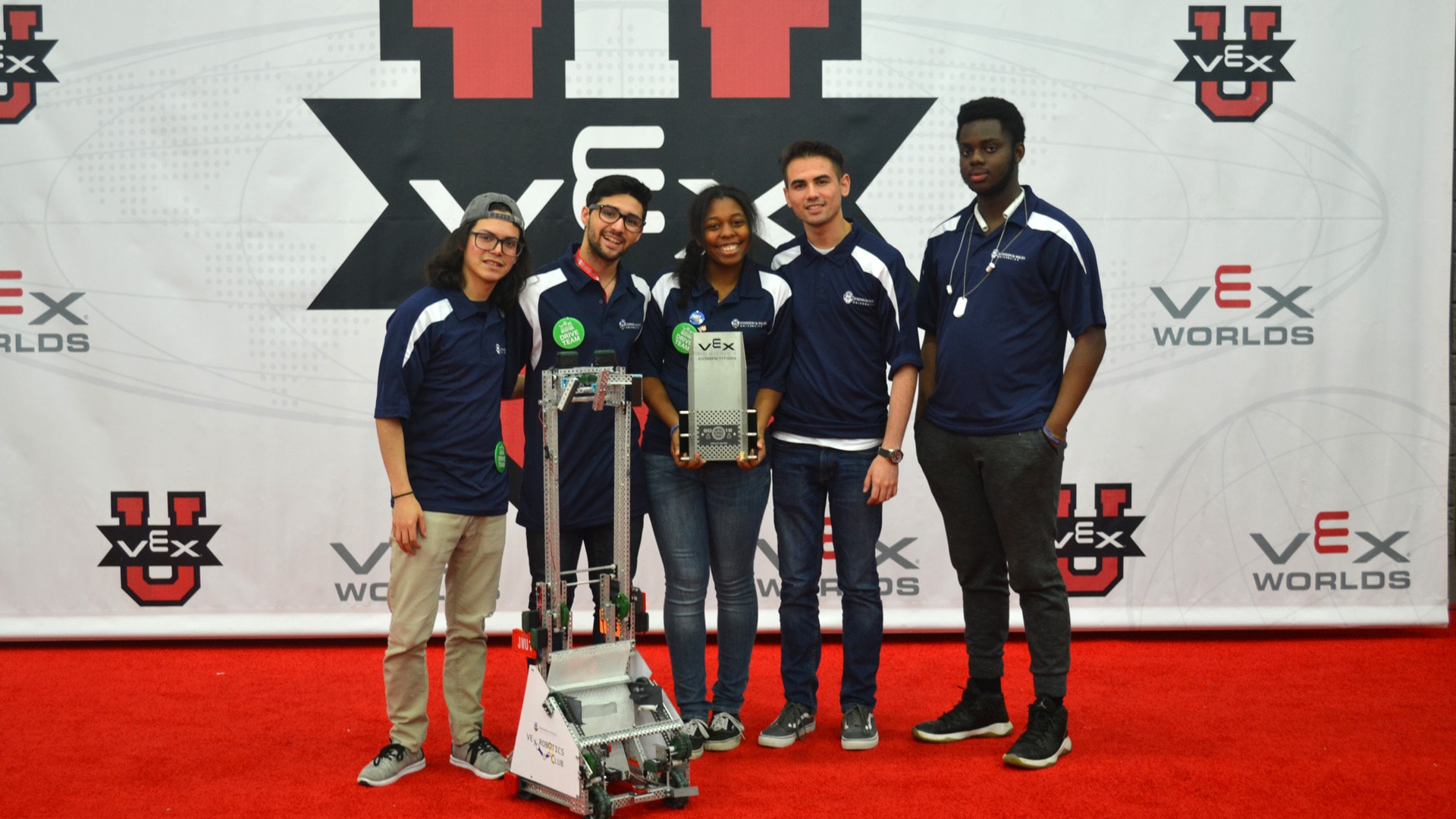
In the world of robotics competitions, seconds can make a big difference. It’s how you win or lose. It’s how teams prove themselves worthy. And for the JWU Vex Robotics Club, it’s how they ranked 21 in their division and earned the Create Award at this year’s Vex Robotics World Championship.
“The Create Award was the very first award they presented [at the closing ceremony],” says Edgar Falcón ’19 Robotics Engineering. “I didn’t even hear what they said it was for. All I heard was ‘and it goes to JWU1 JWU Vex Robotics from Providence, Rhode Island.’ We were so shocked when we heard our name. We just walked over to the platform with a surprised look on our faces to collect our award — it was great!”
"And the award goes to JWU Vex Robotics."
The Big Picture: JWU’s Performance
Overall, 89 teams from the United States, Mexico, China, Spain, United Kingdom, New Zealand, Puerto Rico, Colombia, Paraguay, Lebanon and Canada participated at the event. During the four-day event, the JWU Vex Robotics team competed in the Design Division, which included 44 teams. They battled in 10 matches, winning five and losing five.
“There were only 11 awards for 44 teams and we won one,” says Jossean Rivera ’18 Software Engineering. “Some teams had almost perfect scores and had won almost every match but didn’t win any awards — but we did. I just feel very lucky.”
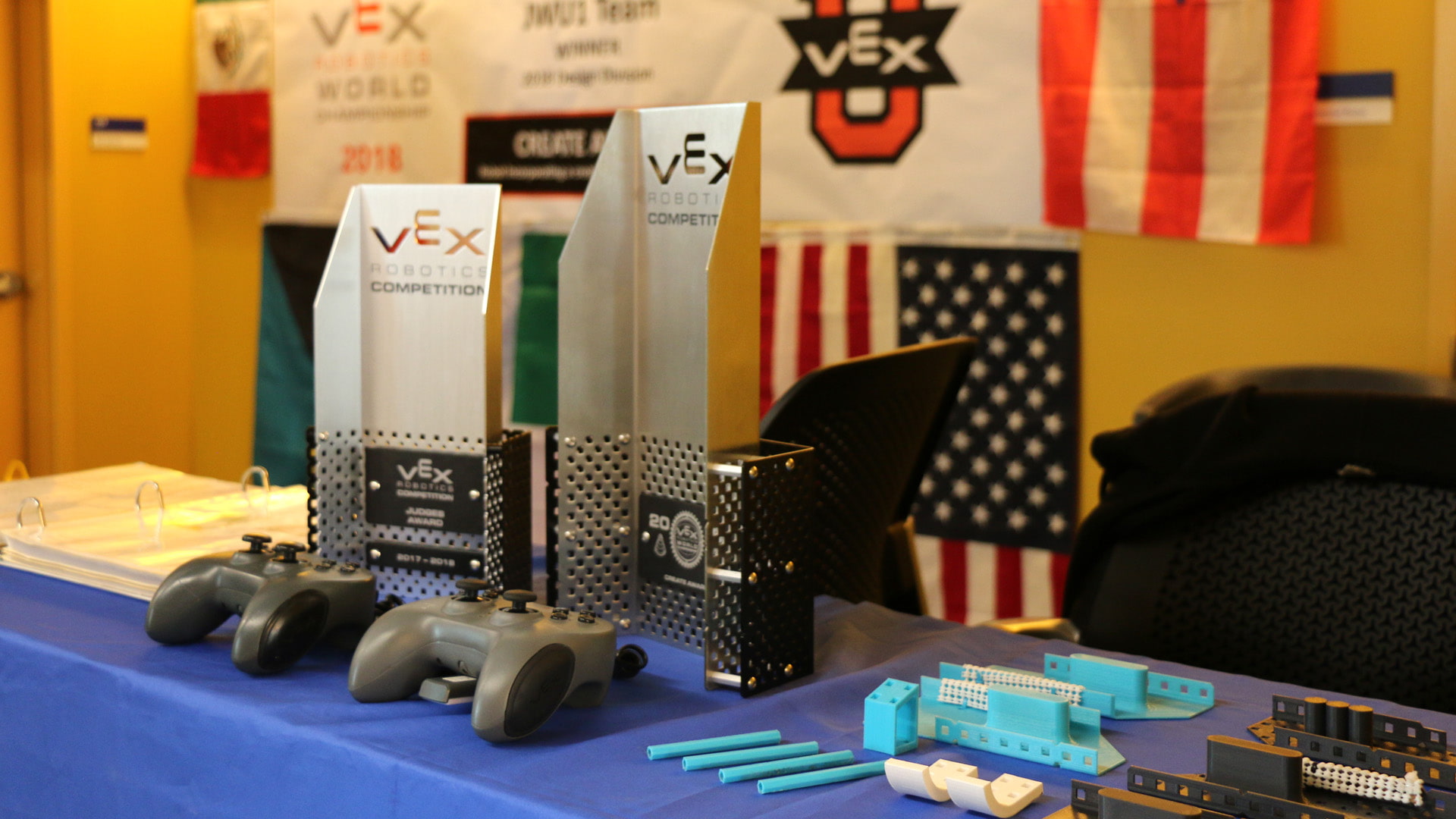
This was JWU’s first appearance at the Vex Robotics World Championship, and the students showed that they have what it takes to stay ahead of other universities already making a mark in the Vex Robotics arena. By taking 21stplace in their division, the team outranked 23 other universities including:
- Florida Polytechnic University
- University of Southern California
- Worcester Polytechnic Institute
- New York Institute of Technology
- Universidad Tecnológica de Matamoros, Mexico
- Lebanese International University, Lebanon
- Embry-Riddle Aeronautical University
- Shaanxi Normal University, China
“We did an amazing job [at World] considering this was our first year at the competition,” says Manuel Rosado ’19 Robotics Engineering.
“We beat WPI and Embry-Riddle. That’s very exciting because we ranked higher than them but they’re bigger, more established universities which usually means they have more money. But we beat them,” adds Rosado.
"We beat WPI and Embry-Riddle. That’s very exciting."
JWU instructor and club advisor, Vidyasagar (Vid) Sivalingam, couldn’t agree more. “This was a great learning experience for our students,” he says.
“This event can be a big launching pad for JWU’s College of Engineering & Design,” adds Sivalingam. “It gives us a great opportunity to project ourselves as an engineering school. I was shocked to see so many top-rated universities at this event — and we were among them.”
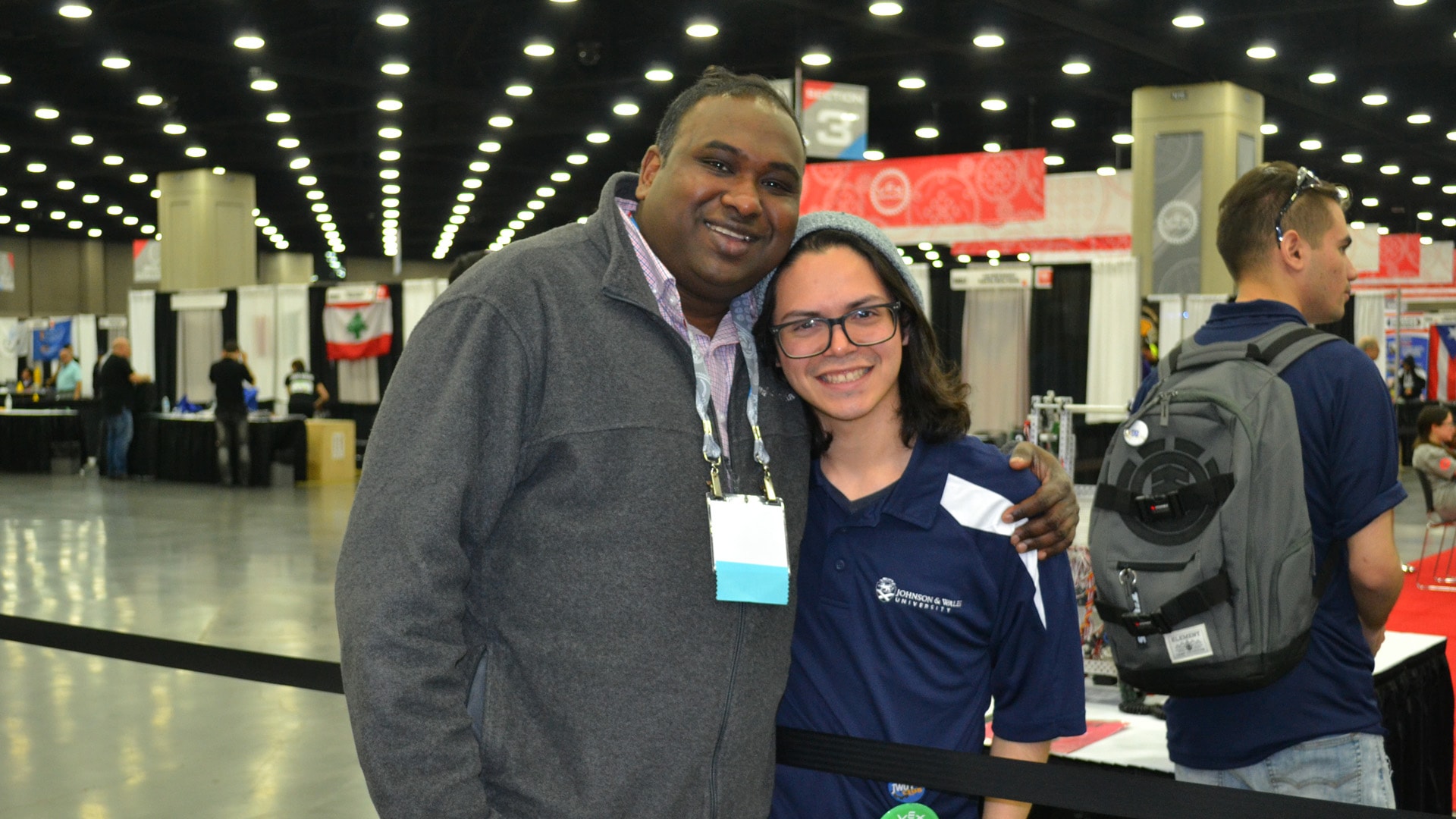
“The JWU team is a little league team that competed against the big-league teams and ended up winning 50 percent of the matches. That’s a big thing for us,” continues Sivalingam. “And we won the Create Award for the integrity of the coding and the uniqueness of our robot.”
Watching in Awe: The Team’s Biggest Fan
When the group of students returned from Kentucky, they stopped by Kathryn Parchesco’s office and they were surprised by what they found.
“She was so excited and so happy that we won the award,” says Falcón. “She pulled out a folder with all the schedule of matches, the rankings, the qualifying matches — she had everything, even a description of what the award was for.”
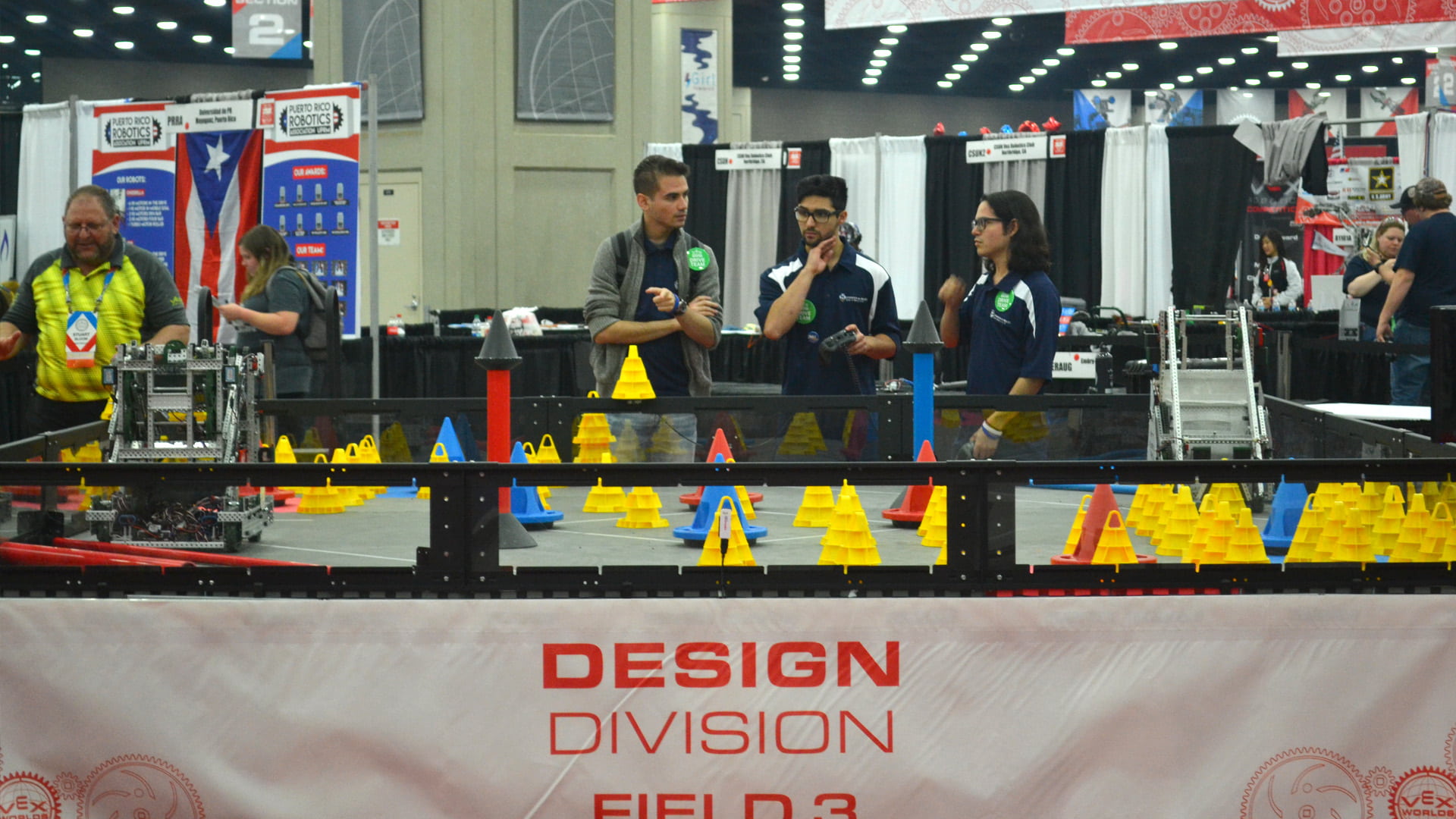
Rivera couldn’t believe it. “She was our biggest fan,” he says adding that it wasn’t until the team spoke to Parchesco that they realized the meaning of what they had done at the competition.
“She congratulated us for beating NYIT and WPI, and once she said that, we thought, ‘Oh, yeah, that’s true,’” says Rivera.
"She was our biggest fan."
Parchesco, department chair and associate professor, is pretty proud of the team’s accomplishments.
“I was watching on my [office] computer and texting my faculty members to let them know what was happening and at what level the team was competing,” she says. “I’m very impressed with the work the students have done in such a short period of time.”
She adds that she was pleasantly surprised that the team won the Create Award. “They won the award for having the most creative solution for the design. And this is fantastic because this really shows what they’ve learned as engineers. They know how to think out of the box. As an engineer you can’t just always have clear-cut solutions. Things have to be adjusted and you have to be flexible.”
Cool Under Pressure? Sure, No Problem!
Although the students had a great time at the competition, there were moments when they wished for things to go better.
“For the most part we were pretty calm,” says Rivera. “But there’s lots of stress when you’re there at the competition.”
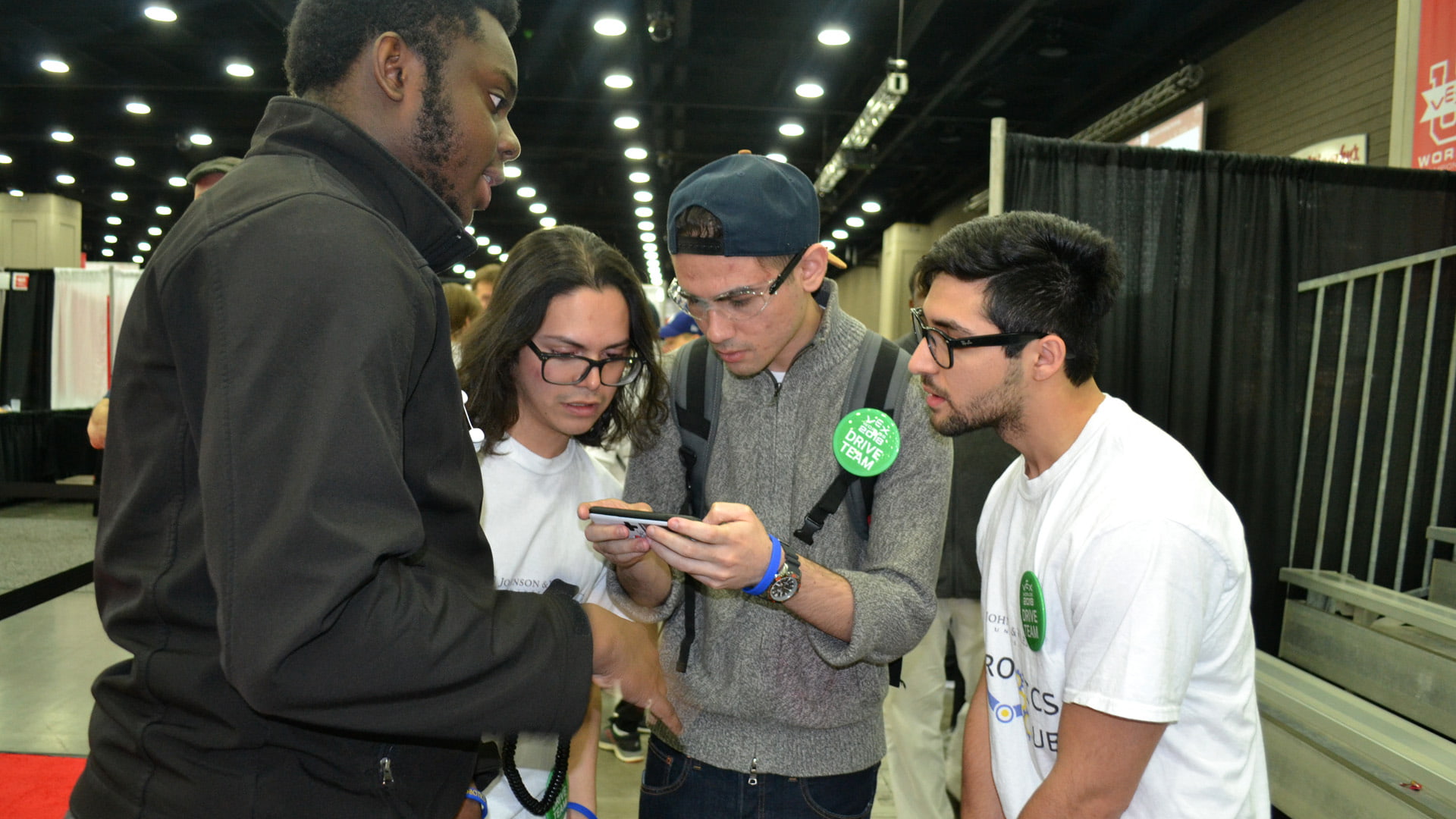
“Our robot actually fell during one of the matches and we had like 20 seconds to decide what we were going to do,” adds Rivera.
“When it fell we panicked for like a second, but then I noticed that the wheels were still touching the side [of the wall] and the claw was open. So, I thought if we went forward and down at the same time the robot would be able to stand up again — and it did,” Rivera says, adding that it was the only robot able to pull that off in the entire competition.
As one of the drivers, Falcón certainly felt the pressure then too. “Sometimes it feels like it’s a lot of pressure for us to keep things up because everybody’s watching us,” he says. “Especially when the robot fell, I just thought to myself, ‘Oh, please turn off the cameras!’”
Already Planning for Next Year
With the academic year ending, the team has some time to relax. But not for long.
"My goal is to have two teams at JWU and at the World competition next year,” says Rosado. “Each team has to build 2 robots for next year’s competition. That’s going to be a bigger challenge, because each team will have to program and build two robots at the same time.”
But before they can get started, the team has to wait for Vex Robotics to release the new microprogramming system, V5, sometime in August. Then is back to square one, because all of the equipment they used this year has to be retired.
“All of the stuff we used this year is now useless, because Vex is changing the competition,” he adds. “But we can still use the robot we have at JWU to train other students at the university.”
Rosado and the rest of the team are up to the task. “This is what we’re going to focus on now, and it’s a bigger challenge for sure,” he says. “I’m hopeful that we can meet that challenge so we can get there [World] and show people that if you put your mind to it, you can do whatever you want no matter what. You just have to believe you can do it.”
